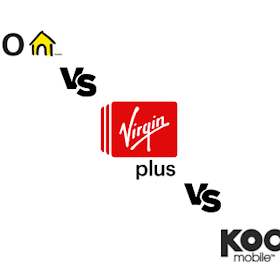Mozilla has revealed that it will soon be releasing its own HTML5-centric mobile OS. Once known as Boot to Gecko, the now-rebranded Firefox OS will focus on promoting openness and innovation through an open source approach that is aimed entirely at HTML5 developers. Sound familiar? It should; it’s a very similar approach taken by Google back when it launched Android, except that Firefox will be focusing on HTML5 rather than Java or Flash.
Mozilla already has some manufacturers on board, although the bigger players are conspicuously absent at this stage. At this stage all we’re really heard confirmed are TCL Communication Technology and ZTE. The first devices out the gate will come running Qualcomm Snapdragon processors.
Firefox OS will be a web-based OS designed almost entirely around the Mozilla Firefox web browser and HTML5. It will first see availability in Brazil in early 2013.
While we’re definitely intrigued by this news, we’re still having a difficult time getting our head around it. Mozilla entering the smartphone market now with an open-source OS aimed at the lower-ends of the market may have sounded like a good idea two or three years ago, but in the current climate it’s so risky it almost sounds insane.
Putting aside the fact that Android is rapidly gaining budget-smartphone share, as even the most basic of smartphones can now run Android, what makes Mozilla think that it can succeed in a world where WebOS failed, BlackBerry is failing and Meego died before it even got out the gate. Not only this, but we’re starting to see an influx of Apple’s older iPhone lines in to the cheaper ends of the market, meaning that Firefox OS may also even have to take on the reigning monarch of the smartphone world.
Now, it might sound like Mozilla is being smart by starting off in emerging markets like Brazil with an affordable range of phones, but there’s still more than a few issues. For one, Android and iOS are starting to see availability in emerging markets. This means that Firefox OS is going to have to compete against the two biggest contenders out there before it even makes a name for itself.
Secondly, the budget-end of developing markets is somewhere where Nokia’s Symbian OS is still firmly entrenched. You may have thought Symbian dead, but there are many places in the world where it’s still very popular. Nokia abandoned Symbian for its higher-end phones, but it’s still going strong in some areas due to its low-price. Once again, Firefox OS may offer a better experience here, but it will be challenging a product that has a firm reputation within the markets in which Mozilla wishes to compete.
Until this news cropped up, the smartphone market was at least starting to give the feeling like it was settling in to just the three major players: iOS, Android and Windows Phone. While Android and WP currently don’t have anywhere near as much market share as iOS, they’re still both leagues ahead of the next highest ranked OS: BlackBerry. In fact, BlackBerry’s manufacturer, RIM, is in such dire straits that many are speculating the company to split or seek a merger within the next year.
Knowing all of this, Mozilla certainly seems to have picked a curious time to throw its hat in to the ring.
On a positive note, we’re actually pretty excited to see what Mozilla has to offer. The Firefox browser is a solid piece of software and the Mozilla team does a sterling job of updating it with regular alacrity. We have a cautious faith that the Firefox OS will at least be a passible user experience straight out of the gate, but we’re dubious whether or not that alone will be enough to grab a user base in the current market. Our bet is that it probably won’t, but we’d be more than happy to revisit that opinion once the OS finally hits shelves.
Related Articles
Related Topics
Mozilla Firefox Mozilla Firefox OSPopular Topics
Android Apple iPhone Samsung Google iOS Cell phone plans Rogers Telus BellFind Better Phones and Plans
Hundreds of cell phone plans unpacked. All the facts. No surprises.




































